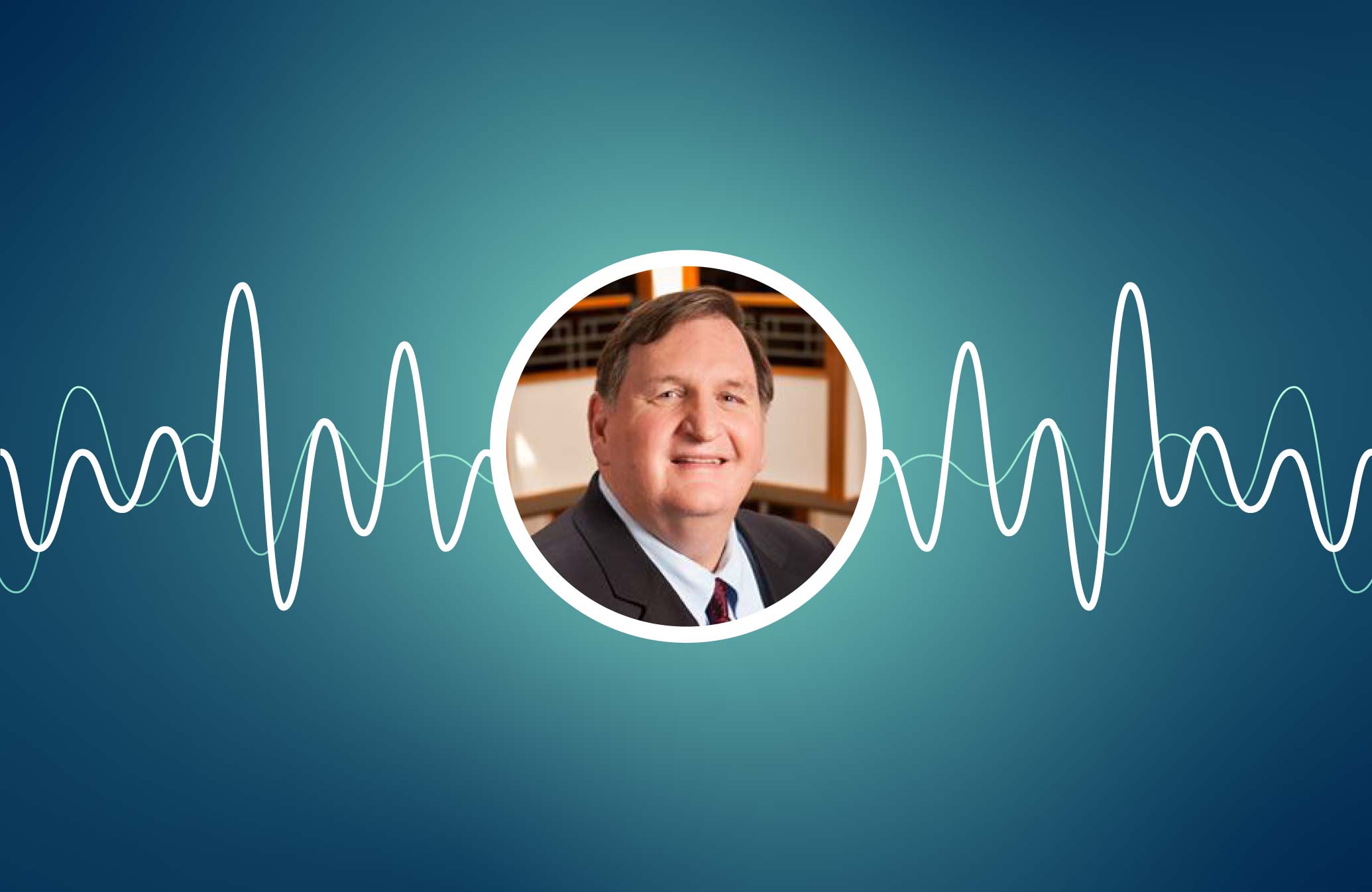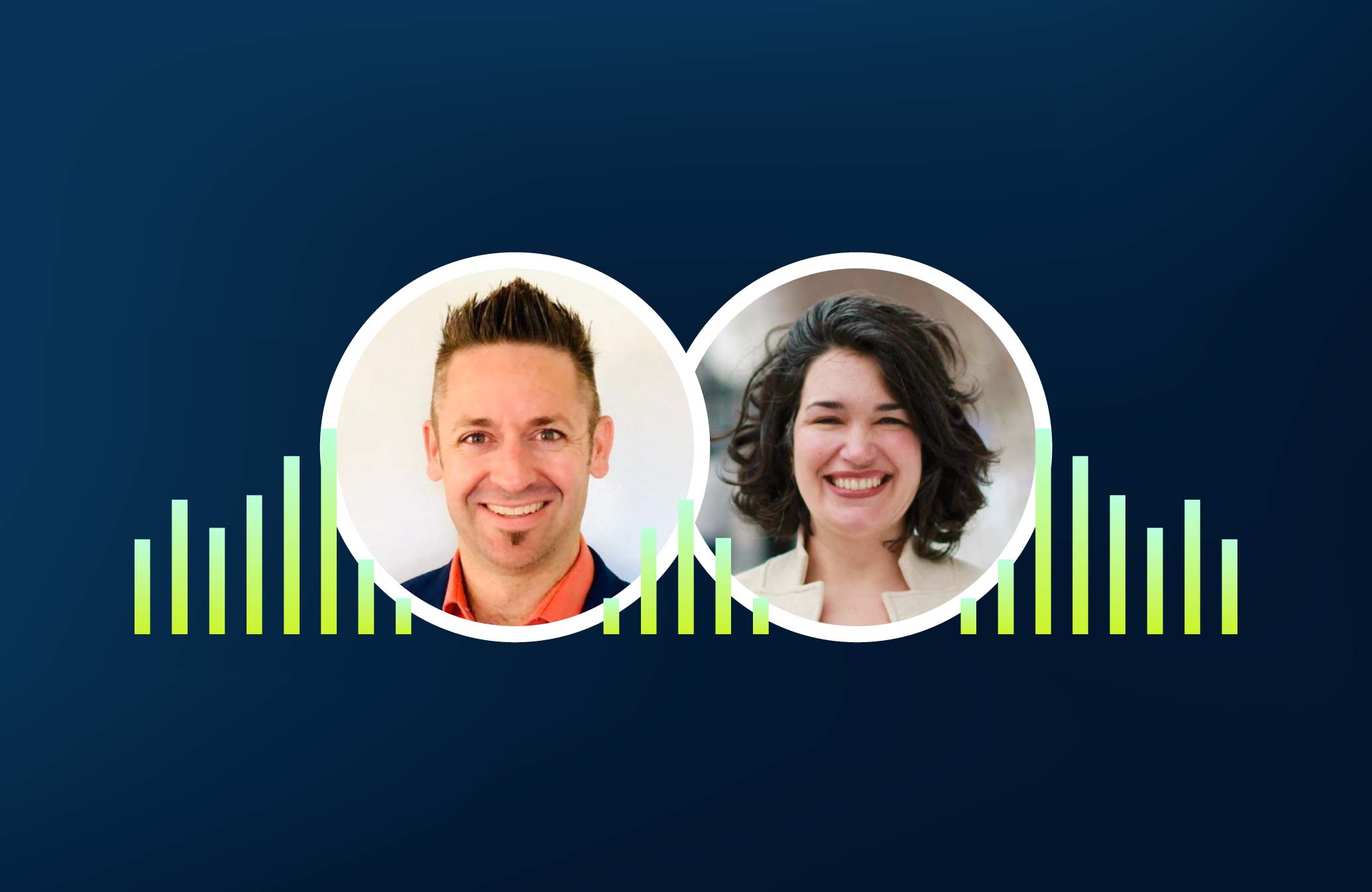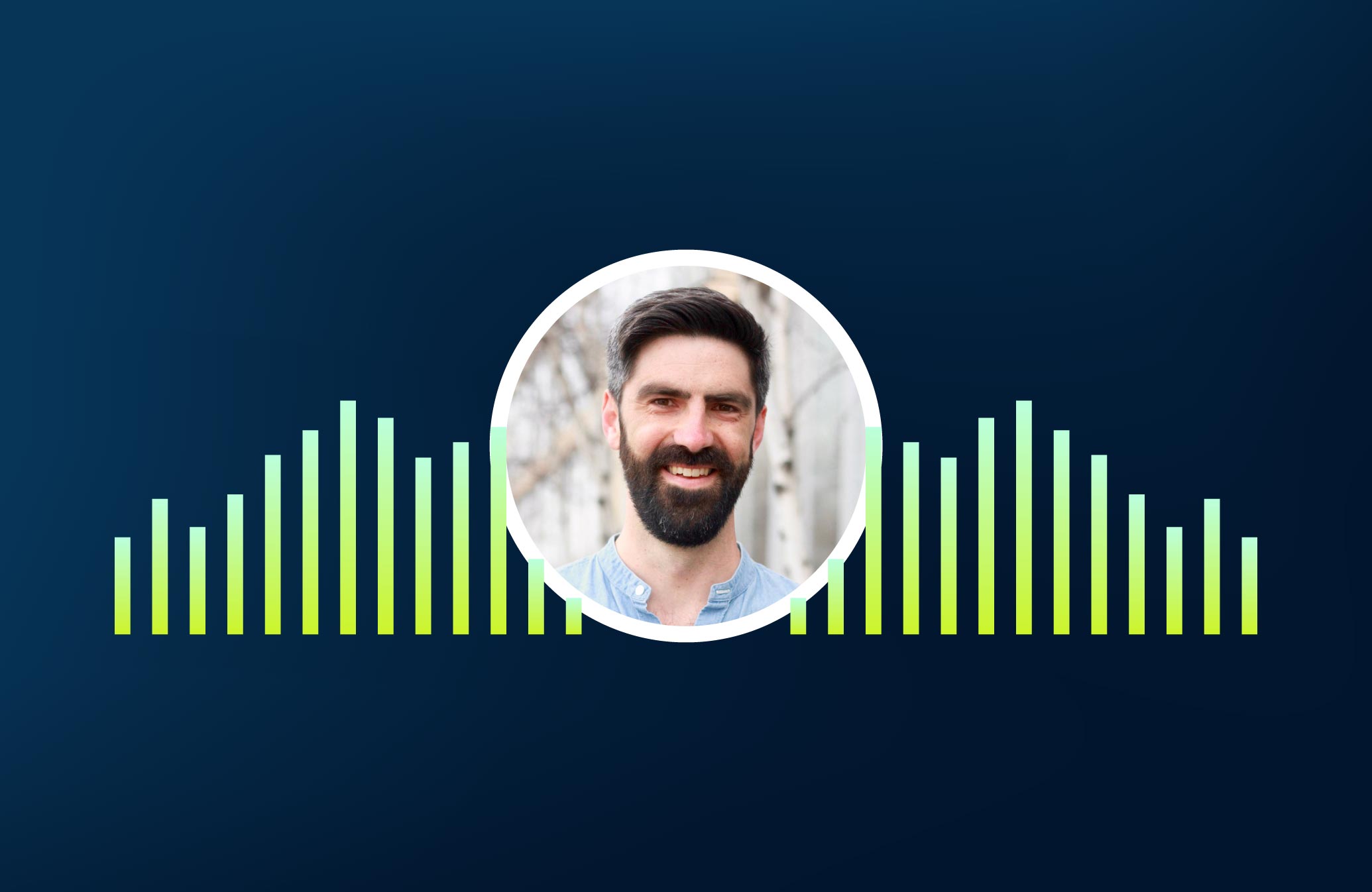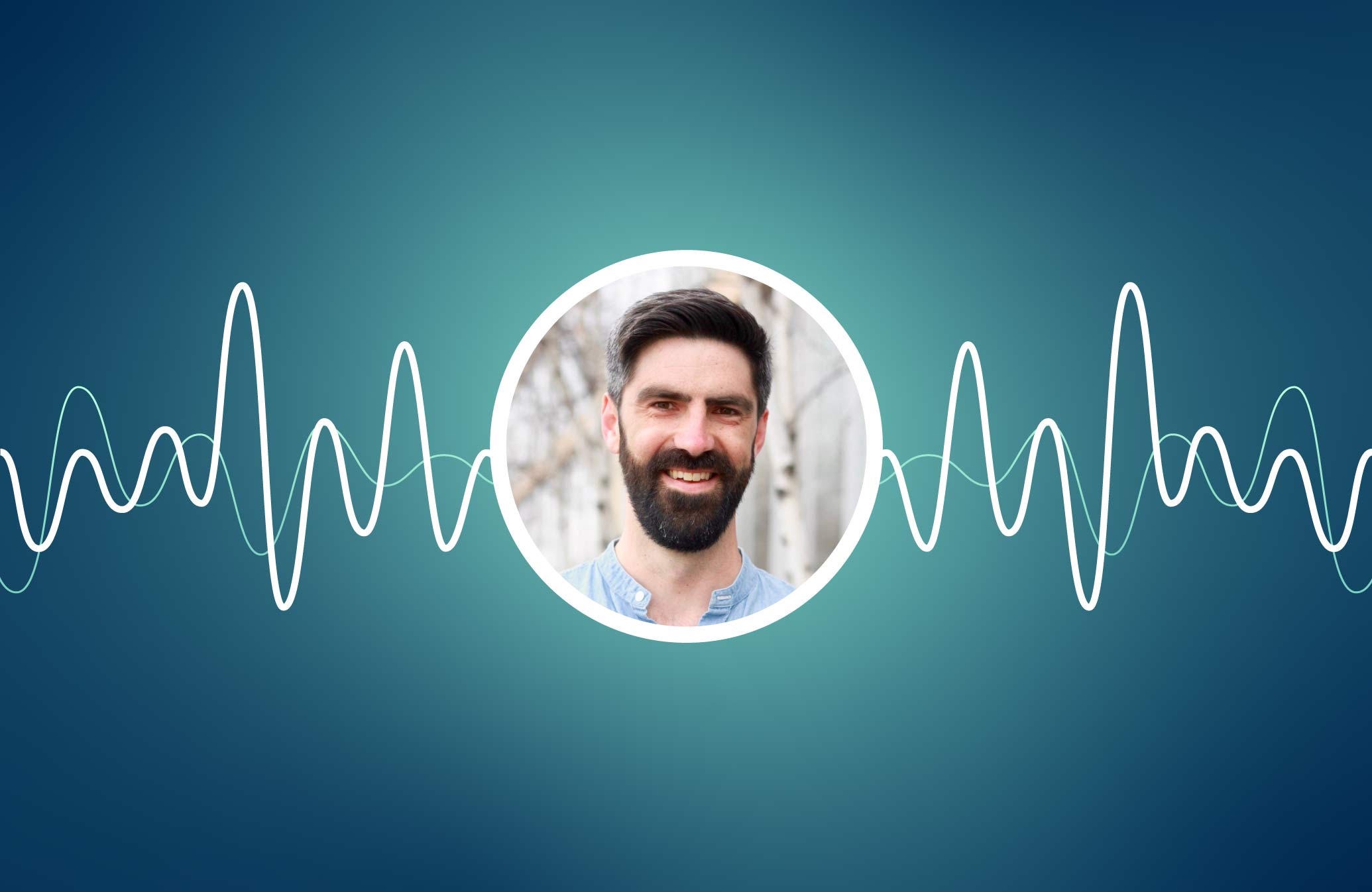Listen Now
Episode Transcript
Announcer [00:00:00] Welcome to RadioRev, podcasting from the heart of healthcare in Minneapolis, Minnesota. This is the podcast for change makers looking to do more than just health engagement. It’s about getting people to take action and do things that actually improve their health. It’s a radical idea, right? So we’re talking with the leaders, innovators, movers, and shakers who are bringing new ideas, inspiring others, and leading the way.
Jenn [00:00:26] Today, Icario CEO Jeff Fritz is talking with our Rev Up 2019 keynote speaker, Kelly Brownell. Kelly is currently the Director of the World Food Policy Center at Duke University. He is a renowned expert on behavioral science and food policy and is known for his public policy work and research on obesity in the U.S. Welcome to the show.
Kelly [00:00:45] Thank you very much. Delightful for me to be here.
Jeff [00:00:47] Well, Kelly, we’re so excited to have you come up to Minneapolis. I know that you’ve got some connections here, but it’s always fun to have somebody from out of town come in during the summer months where we can showcase the great weather and good food, and we demystify the frozen tundra that Minnesota sometimes gets.
Kelly [00:01:11] You know, I’m happy to visit your area. I love the area, and I’m especially looking forward to spending time with you and your colleagues and the people who are attending your meeting.
Jeff [00:01:21] Well, thanks. We like to start these with a fun little trivia question for our audience that kind of connects to who our speaker might be and where they come from a little bit. What’s your favorite ’80s song, if you can think of one?
Kelly [00:01:40] Oh, my God. You’d have to rewind a little bit further than that and say go into the ’70s. One of my favorite musical groups at that time was Crosby, Stills & Nash. And they did some amazing songs. There was one called “Find the Cost of Freedom,” which was a pretty haunting but powerful song. And then also their famous song, “Sweet Judy Blue Eyes” was a beautiful piece of music. So I’d say that’s how I would come down on that. {music plays}.
Jeff [00:02:26] Those are awesome. I think that was—was that before or after Neil Young?
Kelly [00:02:31] A combination. The “Sweet Judy Blue Eyes” came before Neil Young, and I think “Find the Cost of Freedom” came after. But I’m not sure my chronology is exactly right.
Jeff [00:02:41] I’m probably dating myself as well, because I think I had both of those on an album or a cassette tape or some other now-archaic medium. So you’re coming to this conference to help us share with people this concept of behavioral science. Maybe you could just give us a little preview of what behavioral science is and why it might be a powerful tool in thinking about how we motivate people for healthcare and health action.
Kelly [00:03:22] I’m happy to do that, Jeff. Most people have an intuitive understanding of human behavior, and we understand ourselves to some extent and other people. But the behavioral sciences have undertaken that in a more systematic way. So behavioral scientists come from a number of disciplines like economics, sociology, psychology, anthropology. But also people in disciplines like business and law and medicine also study human behavior. And what’s unique about the study of these things is that you can try to do impartial observations of people under controlled circumstances in ways that lead to a better understanding of the factors that drive human behavior, motivate people to behave in the ways they do. And then the hope is that that information can get harnessed so that people can use the information themselves in ways to improve their lives and that institutions can change what they do in order to make similar improvements both in their own culture and in the way they do business, but also in how they affect healthcare and health decisions of the people they work with. And it’s actually at the intersection of a lot of these different areas where the magic resides, because economists will look at the world in a certain way and psychologists in another and sociologists in yet another and probably none of their perspectives fully explains human behavior, although fields tend to believe they can explain everything. They really can’t. And so it’s understanding how these different points of view fit together that provides some pretty unique understanding.
Jeff [00:04:57] Is this something that you went to school for and decided this is what I’m going to be?
Kelly [00:05:03] I did.
Jeff [00:05:07] What’s changed in the lens of what behavioral science is from when you started on the journey to what it is today?
Kelly [00:05:15] Well, after I decided I couldn’t be a baseball player for the Minnesota Twins and had to make another career decision, I went down the route of psychology. So my training is clinical psychology, but I’ve mainly been doing work in public health since that time. And what impressed me as I began taking courses and things in this area is how people make so many decisions every day that affect their health and how better understanding those decisions could make a big difference in how healthy the population is. So if you think of our everyday lives, we get up, we decide whether to brush our teeth, then we decide what to eat, and we decide whether we’re going to be physically active. If we’ll be outdoors, we make a decision about wearing hats and sunscreen. And we decide whether to see the doctor for checkups. And that’s only a little bit of the picture. But we make lots of these decisions every day that have a profound impact on our health. And sometimes those decisions are made in rational ways that lead to health and sometimes they’re not. And I thought it would be a very powerful endeavor to look at how these decisions get made and what might be done to improve them overall. So that’s what drew me to the area.
Jeff [00:06:25] It’s such a fascinating area as I think about it as somebody who’s worked mostly in technology. And then I come at it from the math side, the data science view of it. And then trying to integrate in the learnings from behavioral science to influence how we can build tools to help move people to take different actions. It’s just fascinating to me every day I get to work on this. What have you seen on the—and I’ll use the word population health, some people say ‘population health’ is a term that is becoming a little dated because there’s so many ways to talk about populations or groups or even individuals and their health—but in general, what are some of the biggest impacts that you’ve seen from the work that you and your colleagues have been doing in public policy? Maybe specifically around obesity or other major health issues? Where have you seen this really being an aha moment?
Kelly [00:07:32] There have been some pretty profound changes in public health over my lifetime. One of the biggest was the huge decline in cigarette smoking in the United States. And that really came about through the application of behavioral science. The economists proposed having high taxes on cigarettes. That turned out to be the most effective way of decreasing cigarette consumption. But the psychologists studied messaging that would encourage people not to take up smoking or to stop if they had. And then there were a lot of other things that got done that really changed the culture around tobacco. And it kind of rises and falls, and new things enter the picture like e-cigarettes. But overall, there’s been a massive health benefit from the decline in tobacco. Now, in my area, the work on obesity and nutrition area, there have also been some pretty profound changes. At one point people didn’t really pay much attention to nutrition and obesity. It was considered in medicine to be kind of a backwater topic. But as more and more people became aware that there were big population impacts of poor diet and physical inactivity, more and more people began taking it seriously. And now there’s so much work it would be hard to keep track of it all. But some major changes have occurred, and we see these around us every day. One of the biggest and the first change that occurred on a large scale had to do with school nutrition standards. I don’t know what it was like, Jeff, when you were in school, but when I was in school, there weren’t many vending machines, and it was sort of a healthy related lunch, and then it became a free-for-all. And then you started having pizza and chicken nuggets, and fast food, even fast food franchises inside some schools. And you’d have dozens, sometimes, of vending machines in schools. And that signaled a change toward commercialism and away from protecting the health of the children. But now there’s been a big change in that in schools all around the country, driven partly by national legislation, to have much tougher standards on what’s reasonable to provide in schools and what kids are getting for things like breakfast and lunch. And that’s made a big difference in children’s nutrition. Another massive change has been a pretty significant decline in sugar-sweetened beverage consumption. People used to be consuming these things in extraordinarily large amounts. And especially young men and teenagers and some other parts of the population. But the consumption of these beverages has been declining systematically, and that’s due to a lot of different things. Research showing that these beverages have negative health impacts. The taxes have now been used in a number of places, just like with tobacco. Schools are kicking them out. People are becoming more suspicious of the marketing. And the companies are now having to answer for their marketing behaviors and sales behaviors around these beverages. So these are some of the things that signal a very important change in society, namely that we don’t just believe that these have to do with individual behavior and individual responsibility. That’s of course very important, but that there are things that institutions can do to try to help protect the health of people through their diet. So a school getting rid of soft drinks would be an example of that. But there are many others. So these signal very important changes, and I think very positive ones. And as we go forward, I think we’ll see even more of these sorts of policies and practices put into place. And they will combine with interventions aimed at individuals so that they have the maximum knowledge about what’s healthy and not and things like that to form what we hope will be a significant improvement in the health of the population.
Jeff [00:11:18] That’s great work. I’m hearing a combination of individual initiatives and institutional initiatives and institutional falling into the private sector initiatives as well as public sector initiatives. Can you share with us some of the work you’ve been doing at the federal level? I know you did a little bit of advising in the White House during the last of the Obama administration, not that this is a political topic, it’s just the time that you were helping out. Can you share a little bit about the work that you were working on with the White House?
Kelly [00:12:03] Well, both during Republican and Democratic administrations, there’s still a lot of interest in nutrition and healthy food behavior in the past in places like the Food and Drug Administration, the U.S. Department of Agriculture and, of course, Health and Human Services. And so during all these administrations, I interacted a good bit with government officials and some pretty significant changes have occurred over the years in policies that really affect the health of the nation. Now, you mentioned the Obama administration. Because Michelle Obama was so committed to addressing childhood obesity, some very important progress got made during her time in the White House. A lot of it had to do just with recognition of the problem and the decision-makers around the country becoming aware of the magnitude of the problem and the serious consequences of it. So then governments and schools and other institutions started to take it more seriously, and that was a very important advance. But government can do a lot. I mentioned school nutrition standards, but the way foods get labeled is an example of that. The way certain foods get promoted through the dietary guidelines. There are a lot of things government does that really have a big impact on the behavior of individuals in the population as a whole. So it’s important to work at the level of the individuals, as you mentioned, but also to work with public policy because you can affect so many people that way.
Jeff [00:13:31] So on the—let’s just use school lunches an example. I’m thinking about how when I was growing up, every time I picked up my lunch tray, I would walk by this crate that had a bunch of little milk cartons in it. And every day that was the thing that I had to choose from. I would pick up a little carton of milk and put it on my lunch tray in the lower corner that had a square in it. And that’s where that milk belonged. On Fridays we got something really special. We had a choice of regular milk or chocolate milk. But those were the choices that I had to make. And I think you’ve done some interesting work around defaults that I’d love for you to share a little bit about those default choices and if in fact my milk choice was a default at the time and the learnings that you guys have implemented across other programs around defaults. Maybe start with describing what a default is.
Kelly [00:14:45] So a default has to do with the environment you’re exposed to and what set of choices you are able to make. And the environment can be set up to promote health or can be set up in ways that make health more difficult to achieve. And there are lots of examples. But you and I and lots of others work in buildings where the air is safe to breathe. And we have given government the authority to create healthy air in those buildings through the right filtering systems, and the air can’t be polluted and things. And so we have a healthy default. If we’re in the buildings, we’re going to breathe air. And so that part of our life is taken care of. Now, if government weren’t doing this, and there were more lax standards, it’s possible that the air in buildings wouldn’t be so carefully controlled, and we would be exposed to an unhealthy default. We would get sick of the foods in schools, as an example. If kids are fed healthy foods in schools, they’re likely to be healthier. If they’re filled with junk food, then they’re likely to be less healthy. These defaults affect this in very important ways in really all parts of our lives. You could just take driving in your automobile, for example. Now, if you’re in an automobile accident, and hopefully you and everybody listening won’t be, but if somebody is, you hope that the airbag deploys in your car. Now, that’s not something you’re taking active action on. It’s nothing you even thought about when you bought your car because they come as the default, and that would be a healthy default. Now, if airbags were optional and you could opt out, then some people would opt out. They would have a less healthy default. So you can see how this applies to lots of different areas in our life. And the milk is an example. There have actually been some studies on encouraging children to drink regular milk versus chocolate milk when both are available at the same time because the chocolate milk has additional calories that children don’t need. And you can help change the default simply by where you place things. So if you have a crate a milk but the chocolate milk is at the back, and it’s harder to reach, kids will still get it. Some will, but it will change the default in a little bit of a healthier way. It will affect the number of kids who take the white milk versus the chocolate milk. And there are lots of ways you can apply this concept of defaults into different things, like if you change the price default of something like tobacco or food to increase the price of things you’d like to see the population consume less of and perhaps even decrease the price of things you’d like to have people consume more. And it’s a very powerful concept and has been applied in lots of different ways. Whether people are organ donors by default or whether they’re enrolled in pension plans by default. And time after time, the research is very clear that if you create a healthier default, better health will be the product.
Jeff [00:17:45] That’s great. Speak a little bit more about some of the challenges that are sitting on the spectrum of healthcare challenges out there. What are the ones that are a little more prevalent or front and center that behavioral scientists are working on a little bit more vigorously or thinking about a little bit more?
Kelly [00:18:09] Well, what people consume in terms of their food is a huge issue. Food is related to so many different health outcomes, the obvious ones like hypertension because of salt, and heart disease because of fat, and all of these. But there are a lot. There is a long list of cancers and other things affected by diet. Now, it’s a pretty vexing issue because the problem with food consumption is that there’s a real difference between the short- and long-term impacts. The negative long-term impacts of consuming an unhealthy diet are way down the road for many people. It could be decades before people experience negative health impacts, whereas the reinforcing properties of the food are pretty immediate. It tastes really good. It’s been chemically engineered to work on the brain in a very powerful way, some people even think an addictive way. The marketing of it is powerful, and so many times eating food has symbolic value to people. It’s associated with friendship. It’s associated with your favorite music stars, your favorite athletes, and things like that. So the marketing’s a big factor. And the pricing of food can also create an unhealthy default and can create a difference between short- and long-term consequences, because very often the unhealthy food, the highly processed, calorie-dense, nutrient-poor food is cheaper to buy than the healthier options. And it’s, of course, easier to consume because you don’t have to prepare it. You just take it out of a bag or a bottle or a box. And so changing diet is something that sounds kind of easy, but it’s actually pretty darn hard, and a lot of behavioral scientists are working on methods to do this. And one way to do it is to change defaults in some of the ways I mentioned before. So I’m happy to have the opportunity at your meeting to be talking more about this.
Jeff [00:20:02] I think you’re going to have a lot of people leaning in and trying to not just understand the work that you’re doing, but also how do they apply it into the sphere of the healthcare world that we’re sharing together or what corner of the healthcare world they’re in. Talk a little bit—you’ve been involved a little bit with the World Food Policy Center. Share with everybody just a little bit about what the World Food Policy Center is and what its goals are just so we have a little context of that work.
Kelly [00:20:37] Well, Jeff, I came to Duke about six years ago, having been on the faculty at Yale University for 20 some years. And during that time, I was working mainly on nutrition, public health, and obesity prevention. And it became pretty clear that there was a lot going on in other aspects of the food world. Like in agriculture, for example, that my field wasn’t very connected with. And so I set out to explore these connections myself. I learned a lot and it became pretty clear to me that people in these other areas didn’t know what was going on in our area. There was a segmentation like there is in most fields that created real policy gaps and program gaps. So I thought there would be an interesting space for somebody to come along and create a bridging enterprise that instead of recreating depth on any one topic, let’s say, hunger and food insecurity or obesity or agriculture, that there would be a bridge that connected these areas in ways that looked at the specific points of connection, the intersection of the areas as where there could be new opportunities. And that created the birth of the World Food Policy Center that we’ve now opened at Duke University. We’ve been at this for about a year and a half, and we’re very excited. It’s the most daunting thing I’ve ever done professionally because we have to learn about a lot of things. In my past, I didn’t have to learn about agriculture and what the lives of farmers were like, and where the food came from, and how it’s processed, and things. But now I do. But it’s also the most exciting professional thing I’ve ever done because we’re learning so much from these different areas and learning how they connect. We’re doing a lot of different things in the center. But the one thing that we’re very excited about at the moment and in particular is a project that we’re calling Model Food Communities. So we’re working very carefully with a middle-sized urban area in North Carolina. It happens to be Durham, where Duke University is located, and also a rural North Carolina county to see whether model food communities can be created that bring together what is now pretty splintered work across these areas that I mentioned before. You can learn about best practices from around the world. You can try to scale up things that work well. And most of all, you can engage the community to find out what it needs and what it believes is important. And that’s very often different than what the experts think might be important. And then see if those sorts of efforts can be funded and scaled up in ways that create a healthier community overall because you’re simultaneously addressing food insecurity, hunger, obesity, and food and agriculture systems. So that’s what the World Food Policy Center is all about. I’ll be happy to talk more about it at your meeting, but we’re excited about the potential here. And as I said, we’re learning an awful lot in the process.
Jeff [00:23:39] And it is exciting. It’s exciting to hear about. So I’m looking forward to learning more. I know some of our attendees will have an opportunity to listen to us talk today as we publish this podcast ahead of our event. Is there anything else that you can inform the attendees of our event that…hey, come thinking, come with some thoughts about this or that, and that’ll prime the pump for them to relate to some of the content that you’re sharing?
Kelly [00:24:18] Oh, I’d love for the attendees to come in with thoughts about what impedes people making healthy decisions, and what impedes them as individuals, and what impedes institutions for taking actions that might improve health. And then we can hopefully do some collective brainstorming about how things can change. And I think there’s an awful lot of potential. I’ll talk about how behavioral science can be applied in a little more detail than what we’ve done today and give some more examples of successes. And then we can talk collectively maybe about how individuals and institutions can change defaults in ways that can lead to significant improvements in health.
Jeff [00:25:01] Kelly, thank you so much for participating with us at the Rev Up conference and taking time to talk with me today about this really important topic and how it is changing how people are navigating health and healthcare and food and all the things that really impact their lives.
Kelly [00:25:25] Thank you, Jeff. It’s been very nice talking with you today.
Announcer [00:25:28] Thanks for joining us for the RadioRev podcast, brought to you by Icario. If you found today’s conversation as informative and energizing as we did, please take a moment and subscribe to the podcast. As always, we invite you to learn more about us and check out all of our content at dev-revel-health.pantheonsite.io/RadioRev.
Inside the Episode
Revel CEO Jeff Fritz is talking with our Rev Up 2019 keynote speaker, Kelly Brownell. Kelly is currently the Director of the World Food Policy Center at Duke University. He is a renowned expert on behavioral science and food policy, and is known for his public policy work and research on obesity in the US.
In this episode, Kelly gives a sneak peek into his Rev Up 2019 presentation. Topics of discussion include:
- A definition of behavioral science and how it can motivate healthy action
- The biggest impacts on population health from public policies around obesity
- Challenges to changing behaviors as they relate to overall population health
To keep the conversation with Kelly going, connect with him on LinkedIn.
“Defaults affect us in very important ways, one large one being our health, so by creating healthier defaults we can help people make better choices.”
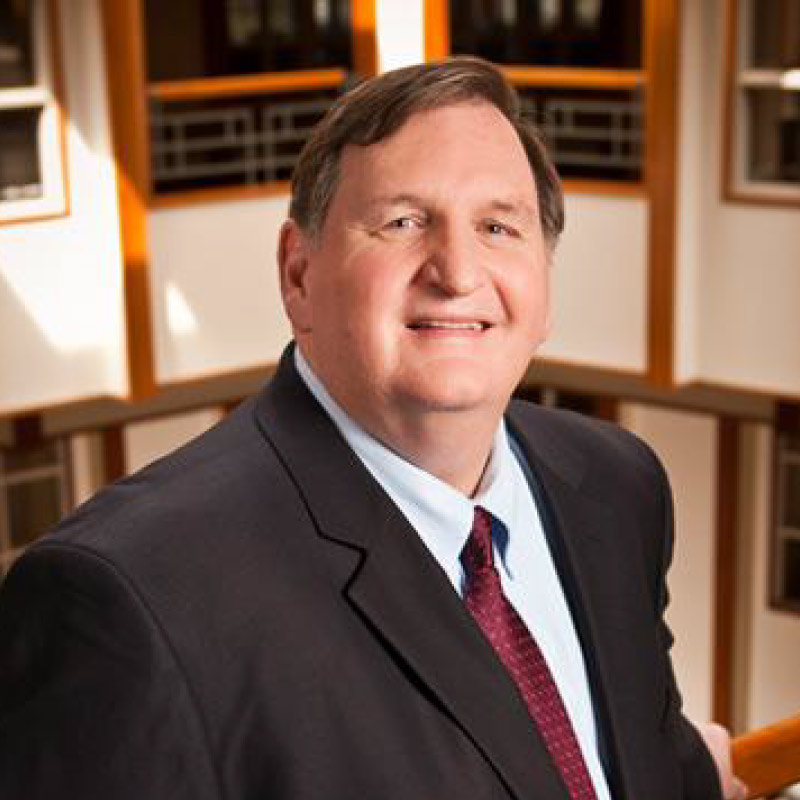
Kelly Brownell
Director of the World Food Policy Center at Duke University
Can’t get enough of RadioRev?
Check out all of our episodes to stay up-to-date on the latest in healthcare innovation, social determinants, and health action.

